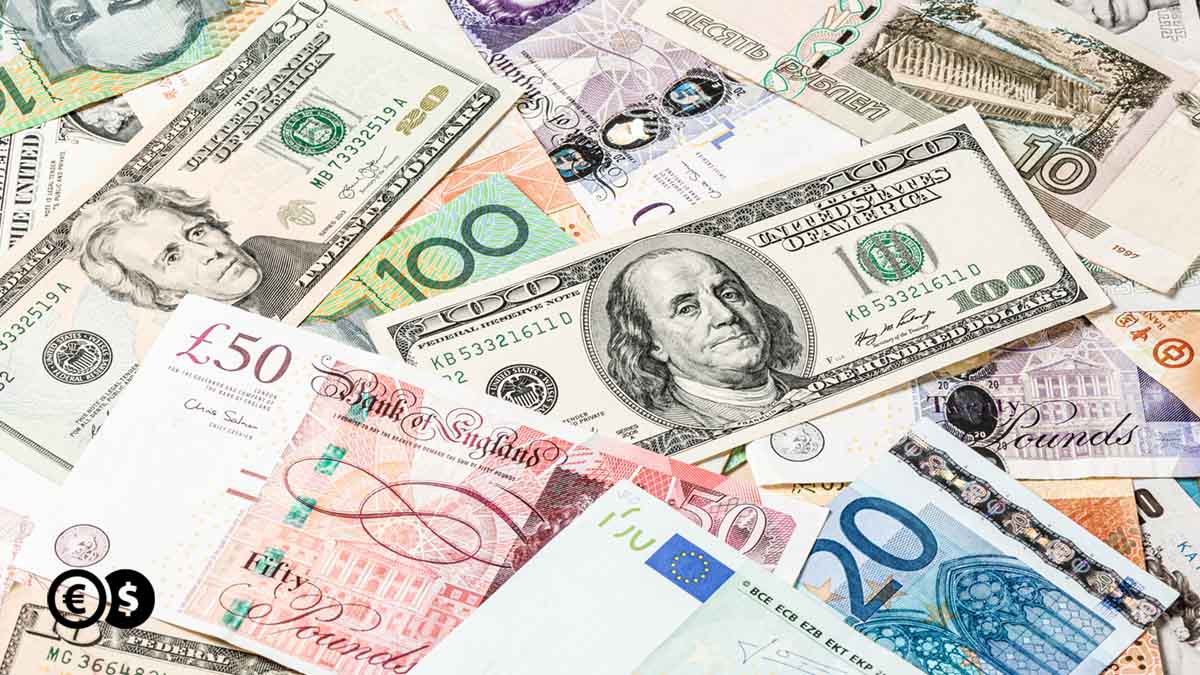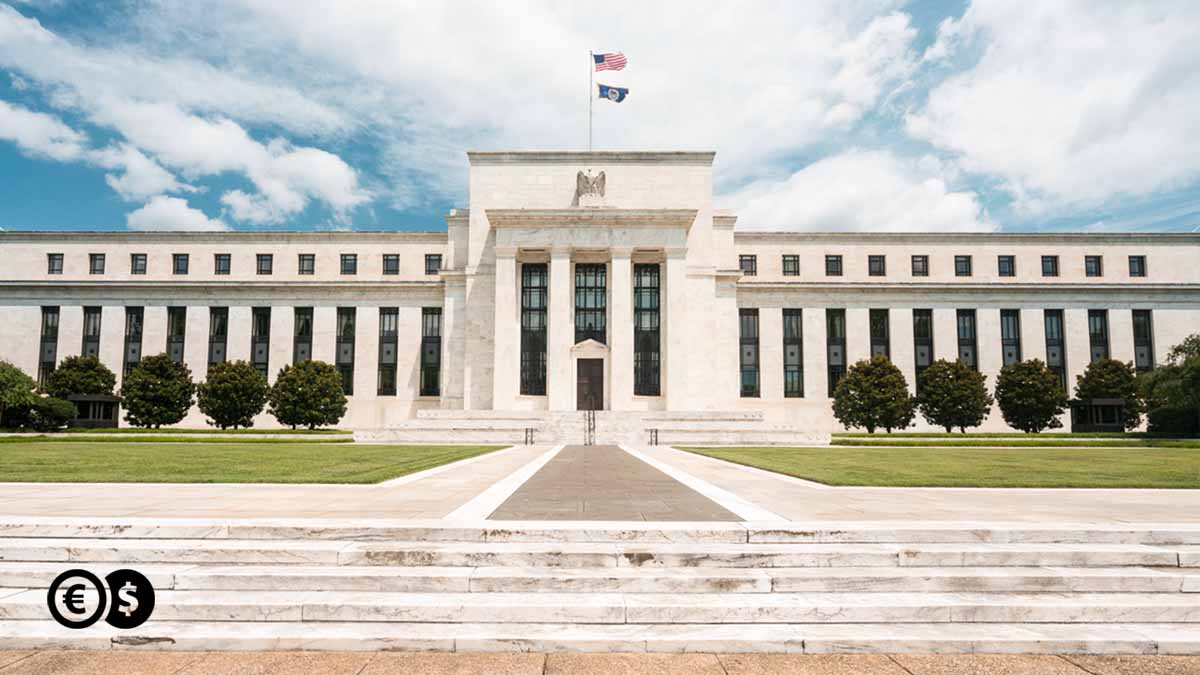In June 2021, 1 USD cost less than 3.70 PLN. In October 2022, 1 USD cost more than 5 PLN. From the point of view of a tourist travelling from Poland to the US or a Polish businessman exporting his goods to the American market, such significant changes in the exchange rate can mean gains, losses and, in the worst case, bankruptcies.
Table of contents

Hierarchy in the Currency World
Almost constant change affects all currency pairs, translating into different areas of life, even if we do not personally travel abroad or buy goods directly from other countries' online shops.
Not all currencies in the world are of equal interest and subject to the same rules. If this were the case, the exchange rate movements that occur would be repeatable and easy to predict.
The king of the currency world is the US dollar, with the world's most powerful economy behind it. The US dollar is used to price raw materials, hold the strategic reserves of national central banks and conduct international transactions. Other major players on the currency scene include the euro, the currency of the wealthiest EU economies, the British pound and the Japanese yen, but also, for example, the Swiss franc, the monetary unit of a country with several times fewer inhabitants than many individual metropolises. However, the size or population of a country does not matter here. What matters is that the CHF is one of the world's top ten currencies in international circulation.
"In this group, there is no room to look for the Polish zloty, which, together with the Hungarian forint, the Czech koruna and the Brazilian real, belongs to the second league of currencies, i.e. the basket of the so-called emerging markets. This is an important category from investors' perspective," explains Bartosz Sawicki, market analyst at fintech Conotoxia.
From risk to fear, namely the two main investor motivations
What influences exchange rates? The short and apt answer can be summed up in two words: demand and supply. More space must be given to the question of the factors driving demand for, e.g. dollars, euros, pounds, zlotys, etc.
Investors are becoming risk averse in the relative reality of global calm and even development. Thus, they place their capital precisely in the currencies of emerging economies, which are not yet fully developed and relatively unstable. It is because they can expect a higher return on their investment there. The zloty, along with other currencies from the EM basket group, may then enjoy demand and gain in value, simultaneously making it possible to isolate the factors influencing exchange rates.
"The situation changes dramatically when the world is gripped by unrest. Russia invades Ukraine, many powers take sides in the conflict with embargoes, and energy resources become more expensive on the stock markets. In the blink of an eye, the capital flows out of emerging markets, settling in so-called safe havens. On the currency market, these include the US dollar, the yen and the franc. Investors do not count on profits in such activities but seek to protect their capital against losses. Nevertheless, driven by investor fear, demand for the USD, CHF or JPY is growing. These currencies are gaining against other currencies, especially the riskiest ones, and fear becomes another piece of the supply and demand puzzle", the fintech expert analyses.

Central banks' strong cards
Inflation of around 2 per cent used to be described as healthy and beneficial for the economy's development. However, when the dynamics of price increases for goods and services become too low or too high, central banks come into play. By raising or lowering interest rates, these institutions try to put inflation on the right track. However, these measures are neither easy nor obvious, and it can take several years to see results.
"The inflationary theme ranks high on the list of factors affecting exchange rates. Its importance increases when, in a currency pair such as USD/GBP, there is a marked difference in the inflation levels in the two economies. On the one hand, the quotations of a country's currency that cannot cope with rising inflation are doomed to losses. On the other hand, successfully combating inflation through higher interest rates in one country relative to another can cause government bond yields to rise. This encourages investors to invest capital in a country with higher interest rates. In the simplest terms, this can be likened to households looking for the most attractive interest rates from different banks. Higher interest rates can intensify the demand for the currency of the country to which this capital is flowing. Increased demand is in turn associated with a higher price. Consequently, the currency in such a case appreciates, except that this is, in a sense, a double-edged weapon. In the long run, a level of interest rates that is too high has a negative impact on the economy and may lead to a crash, followed by an avalanche of currency depreciation," comments Bartosz Sawicki of Conotoxia.
Market expectations - they are not worth ignoring
The currency's valuation is also influenced by expectations of its future value. Experts base this on political and economic aspects and take into account announcements about changes in interest rates or inflation levels. In the short term, it is this factor that can determine significant fluctuations in currency exchange rates.
A case in point from recent months. Market expectations were largely unanimous that the National Bank of Poland would cut interest rates by 25 basis points in September. Meanwhile, the announced decision to cut rates by 75 basis points significantly surprised both the economists forming their expectations and investors. As a result, the zloty suffered significant losses against most currencies in just a few hours, and importers or tourists going abroad had to pay more when exchanging the PLN against, for example, the EUR or USD.
"The foreign exchange market is a place where expectations are placed on economic developments, monetary and fiscal policy and commodity prices. For investors, the future over a horizon of even several quarters is more important than the here and now. There are many variables, and the complexity of the processes shaping them is enormous. As a result, expectations are fluctuating and the situation on the foreign exchange market and the perception of individual currencies can change frequently", explains the Conotoxia analyst.
Panta Rei - Everything flows
Data on the trade balances of individual economies, the publication of important economic readings, changes of government, demand for energy commodities - these are further factors in exchange rate movements. With varying intensities, they occur almost constantly, 24 hours a day and five days a week. It is enough to have a look at the website or the mobile app of the fintech Conotoxia to notice that literally every few dozen seconds the relations between the dollar and the euro, the zloty and the pound, the franc and the yen, etc. are updated. To find out the current exchange rates, you can use a free, convenient currency converter.
Changes in exchange rates reflect information aggregated by major economic agencies (e.g. Bloomberg and Reuters) on interbank transactions (derived from the demands of citizens, companies and institutions for various currencies) of buying and selling one monetary unit for another. In the simplest terms, each of us can contribute to changes in exchange rates. It is enough to go to an exchange office or use a fintech service (e.g. Conotoxia.com) to exchange, for example, pounds for francs. Suppose more similar transactions accumulate and take on a massive scale. In that case, the exchange office or fintech will report to its supplier an increased demand for CHF and an oversupply of GBP.
The provider will in turn seek to make an adequate transaction in the interbank market. This means it will liquidate the pound to acquire francs, reckoning that the fx market reaction will be to reduce the value of GBP and increase the value of CHF.
These exchanges do not take place in a centralised location, such as an exchange market, and in a manner regulated by a single authority, yet daily trading volumes in the foreign exchange market are as high as 7.5 trillion USD per day, according to the most recent study by the Bank for International Settlements.
These transactions occurred, of course, even before the Internet era, but the somewhat slower flow of information meant that exchange rates changed less frequently then. Bank dealers from various financial centres traded currencies by telephone. Today, an almost constant stream of quotes can be observed. Market traffic dies down after the close of trading (from Friday at 11 p.m. to Sunday at 11 p.m. CET) and on public holidays.
Each of the hundreds of millions of transactions becomes an element of supply and demand, one of the drops joining the streams of market trends, such as the rising value of the dollar or the fading demand for the euro. Banks are the first to react, followed by stationary exchange offices.
"The foreign exchange market is so huge and liquid that the prices of individual currencies, also calculated based on quotations of other currency pairs, must match. Otherwise, there would immediately be a so-called arbitrage restoring the correct rates," concludes the Conotoxia analyst.



